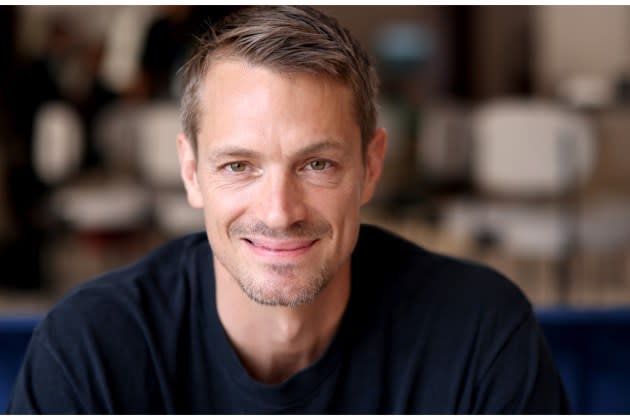‘Silent Night’ Actor Joel Kinnaman on John Woo’s Wordless Thriller: ‘You Are Watching the Same Movie as Everyone Else as It Is Told Visually’

While introducing the Middle East and North Africa premiere of John Woo’s “Silent Night” at the Red Sea Film Festival, actor Joel Kinnaman emphasized the rare opportunity to have “everyone in the world watching the same film.” The actor is referring to the fact that Woo’s first U.S. film in 20 years features no language — no spoken language, that is — and so needs no subtitles.
The characters in the revenge thriller have not a single line of dialogue throughout the film, with the only snippets of speech coming from diegetic music, a few brief radio broadcasts and phone messages.
More from Variety
Speaking with Variety in Jeddah, Saudi Arabia, the Swede said he had a suspicion early on that the film was going to translate in a way that “no other film does.”
“I grew up watching subtitled films but there is always a nuance in the language that gets lost. You can still get the experience but some of the nuance is amiss. [In ‘Silent Night’] this doesn’t happen. You are watching the same movie as everyone else as it is told visually.”
Cinema’s ability to connect to audiences in such a way is the reason Kinnaman moved from Sweden to the U.S., the actor said. “I wanted to make films globally and to tell stories for everyone in the world, so this was a great opportunity to do that.”
“For ‘Silent Night,’ I had to prepare emotionally a lot more intensely than I usually would have because all I had was my eyes and micro-movements that happen in the skin when you are affected deeply by emotion or intense thoughts,” reflected the actor on the experience of acting without dialogue, a new challenge for the action star. “I had to have control over every muscle on my face.”
Kinnaman proceeded to reflect on the unusual shoot by stating how “important a tool” their voice is to actors, but went on to say it is also “a way to cheat a little bit.” “When you deliver a line, it can become a conduit for your emotion, but there is also a bad version of it. You see it on American television a lot, what I like to call whisper acting. It’s when actors modulate their voice to sound like they are emotional when they don’t actually have that emotion in them.”
Kinnaman is in Jeddah not only to promote his latest film, but also as part of the Red Sea Film Festival Competition jury, alongside president Baz Luhrmann and fellow actors Freida Pinto, Amina Khalil and Paz Vega. “It’s been interesting,” he said of the experience. “We just started our jury duties, but getting to sit down to watch these films so intensely from a region where I had only watched the odd film has been amazing.”
The actor added that he finds the rapid development of the Saudi film industry exciting.
“I think this cultural intermingling is incredibly important for the whole region and the world. There are people in the West who still don’t quite realize that and don’t want to associate [with the region] until things are perfect. I think that is such a backwards way of looking at things and it’s a lack of vision, not understanding the impact of the Middle East in general and what is happening here.”
The actor was recently scheduled to shoot his first feature in Saudi Arabia, Neill Blomkamp’s alien abduction thriller “They Found Us.” The film, which was in its pre-production stage, was set to take place in the sprawling Saudi region of Neom but was paused back in October for a rework of the project’s finance structure. Hollywood productions have already began making the trek towards Saudi, with Rupert Wyatt’s “Desert Warrior,” starring Anthony Mackie and Ben Kingsley shot in Neom, and Gerard Butler action vehicle “Kandahar” entirely filmed in AlUla.
“It’s clear that the efforts that are being made are genuine,” Kinnaman said of the country’s burgeoning film industry. “They have resources to build studios and create opportunities for international projects to come here. Of course they are going to need education locally to create a base that these bigger productions can draw from because when you have a big project you have to bring all the crew from outside and it becomes more expensive.”
When asked if one could expect to see him in Saudi more often in the near future, the actor was categorical: “I would not be surprised. I would not be surprised at all.”
Best of Variety
Sign up for Variety’s Newsletter. For the latest news, follow us on Facebook, Twitter, and Instagram.

